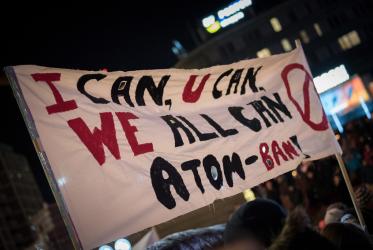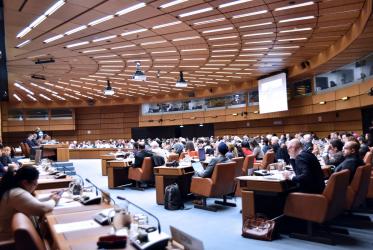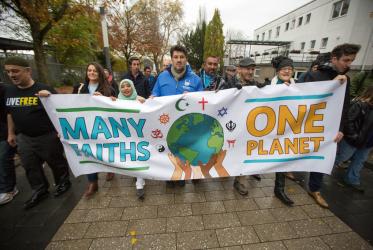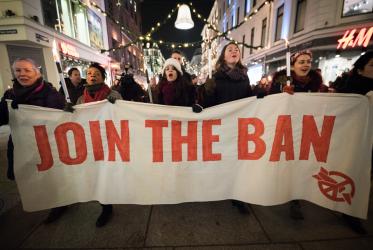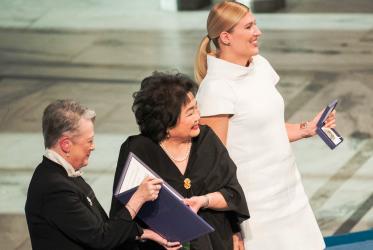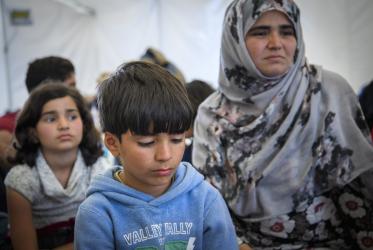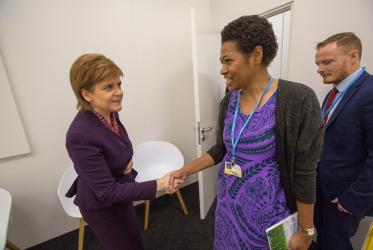Displaying 161 - 180 of 364
Ecumenical group demands for Germany to support nuclear prohibition
22 February 2018
Tveit speaks on Partnership to End Violence Against Children
15 February 2018
Turning plans into action to prevent incitement to violence
14 February 2018
Not just numbers, displaced people need to share their stories
01 February 2018
Churches in France encourage ecological conversion
24 January 2018
COP 23 “debriefing” brings faith and ethical perspectives
23 January 2018
Tveit to World Economic Forum: “Say no to nuclear weapons”
22 January 2018
Peacemaking “a great and compelling life task”
09 December 2017
WCC presents interfaith statement to COP23 high level plenary
16 November 2017
First minister of Scotland meets WCC delegation at COP23
16 November 2017



